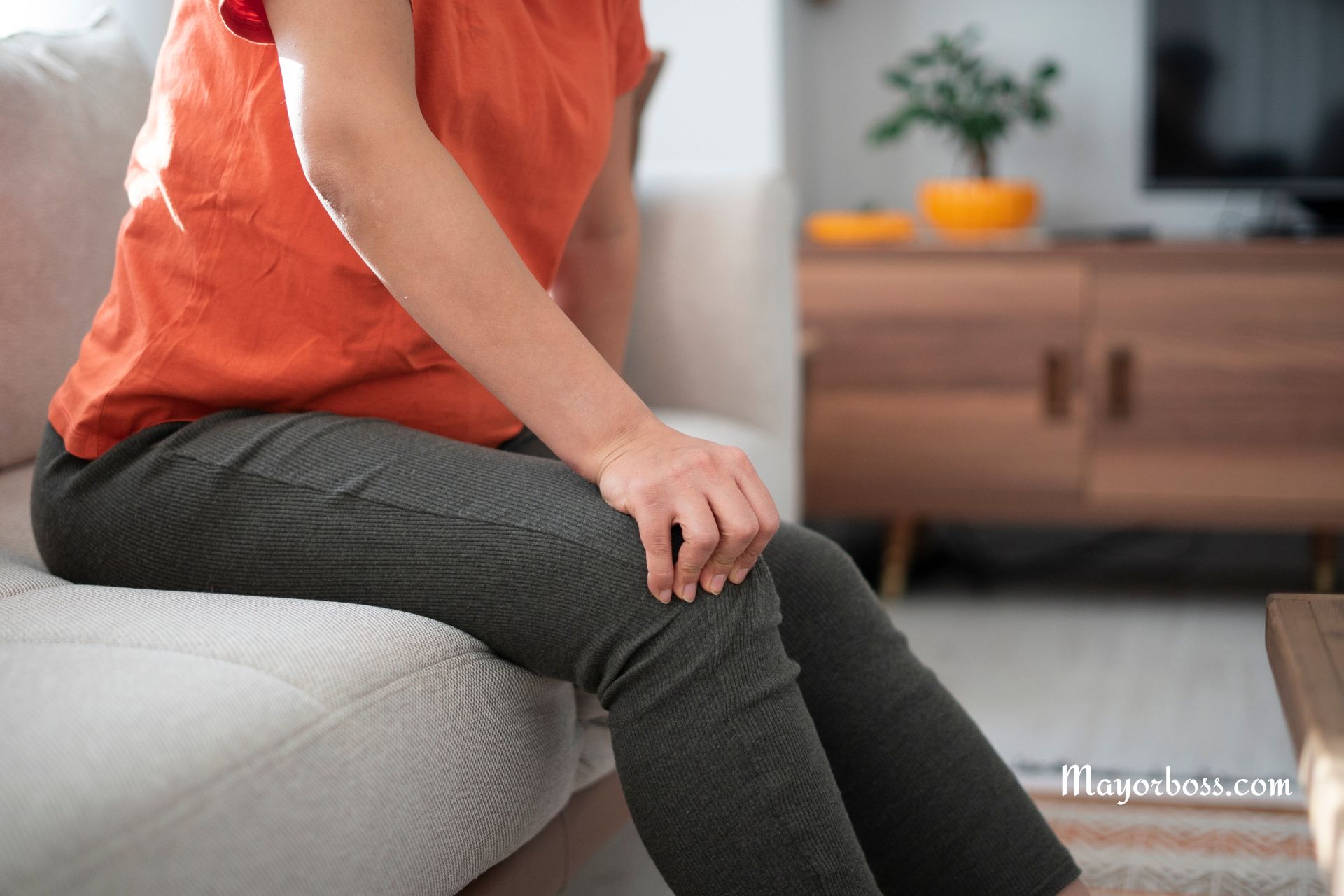Why Are My Joints So Stiff?
Have you ever woken up in the morning or stood up after sitting for a long time and felt like your joints were stiff and creaky? You’re not alone. Joint stiffness is the sensation that a joint is hard to move, either alone or with other joints, often accompanied by pain and swelling. It is a common issue, especially as you get older. But why does this happen? In this article, we’ll explain the reasons behind joint stiffness and what you can do to help ease the discomfort.

What Are Joints?
Joints are the parts of your body where two bones meet, enabling movement and flexibility. They’re crucial for everything you do, from walking to waving.
Why Do Joints Get Stiff?
Now, onto the main question: why do joints get stiff? There are several reasons, including:
- Inactivity: Just like a door hinge can get rusty if not used, your joints can become stiff if you’re not moving them regularly. This is why you might feel stiff when you wake up or after sitting for a long time.
- Aging: As you age, the cartilage in your joints can wear down, and the synovial fluid that helps lubricate your joints can decrease. This process can lead to stiffness and discomfort.
- Arthritis: Ailments like osteoarthritis and rheumatoid arthritis are common causes of joint stiffness. They result from the wear and tear of cartilage or an autoimmune response that affects your joints.
- Injuries: Past injuries can contribute to joint stiffness, especially if they’ve caused damage to the joint structure.
- Weather Changes: Ever heard someone say they can feel a storm coming in their bones? There’s some truth to that. Changes in barometric pressure can cause joint discomfort and stiffness.
Tips for Managing Joint Stiffness
Stay Active
Regular physical activity is key. It keeps your joints moving, maintains flexibility, and strengthens the muscles around your joints, providing support and reducing the workload on them.
Maintain a Healthy Weight
Extra pounds can put additional pressure on your joints, especially your knees, hips, and spine. Keeping a healthy weight can reduce stress on these joints.
Stay Hydrated
Your joint cartilage contains water, and dehydration can lead to reduced lubrication, contributing to stiffness.
Warm-Up and Stretch
Before exercising or starting your day, a good stretch can help reduce stiffness. Gentle, low-impact exercises like yoga or swimming are great options.
Eat a Balanced Diet
A diet rich in anti-inflammatory foods can help. Include omega-3 fatty acids (found in fish, flaxseed, and fish oil) and antioxidants (found in fruits and vegetables), and avoid processed foods and sugars.
When to See a Doctor
If your joint stiffness is persistent, severe, or accompanied by other symptoms like swelling, redness, or warmth, it’s important to see a doctor. These could be signs of a more serious condition that needs medical attention.
Frequently Asked Questions
Q1: Can diet really affect my joint health? Yes, diet plays a significant role in joint health. Foods rich in omega-3 fatty acids, antioxidants, and vitamins can assist in lessening inflammation and support joint health.
Q2: Are there any specific exercises I should avoid? If you have joint stiffness, you might want to avoid high-impact activities that put a lot of stress on your joints, like running or jumping. Rather, opt for low-impact workouts like swimming or cycling.
Q3: How does weather affect joint stiffness? Changes in barometric pressure can typically cause some people to experience increased joint pain and stiffness. Cold weather can also make the muscles around your joints tighter and more prone to discomfort.
